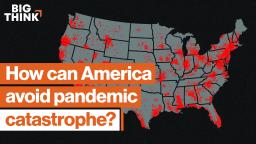GANESH SITARAMAN: Part of the reason that we're in this moment of crisis for democracy is that we've largely misunderstood what democracy is. Democracy isn't just about voting in elections, even though that's important. And it's not just about constitutional norms and institutions, even though that's important too. Democracy has always required much, much more.
Since the ancient Greeks and Romans, philosophers and statesmen recognized that democracy could not persist in a society that had too much economic inequality. They thought that either the rich would oppress the poor, creating an oligarchy; or the masses would overthrow the rich with a demagogue leading the way. Either way, you would lose democracy if you had economic inequality. So what was essential to democracy was an economic democracy; a measure of economic equality, no one having too much economic power.
Similarly, when a society becomes deeply divided by race, religion, clan, tribe, or ideology, democracy also becomes difficult to sustain. And the reason why is that democracy requires us to determine our own destiny together, but when we're so divided that we aim to oppose futures, democracy can't succeed.
Lincoln said that "A house divided against itself cannot stand." And this is why social solidarity, a united democracy, bringing people together across differences, across race, across the barriers that seem to be between us, that is so important to democracy. At the same time, neither economic democracy nor social solidarity is going to be possible without having an actual political democracy; a government that is responsive and representative of the people. But, we don't have that today, either.
In study after study, political scientists have shown that our government is responsive, primarily, to the wealthy and interest groups, not to ordinary people. A system of government that is mostly unresponsive to the people is not a democracy at all.
The core challenge today is that we've never actually and truly achieved what democracy requires. Democracy was severely restricted before the liberal era in the mid-20th century, but the people of that era reined-in economic power during the New Deal. They expanded economic opportunity through the GI Bill and investments in the New Frontier. They fought a war on poverty to promote economic equality and build a great society. And in the midst of all those reforms, they struggled fiercely to end Jim Crow, integrate the nation racially, and promote equal rights for women and people of color because they knew that segregation could never mean equality, let alone solidarity.
These efforts, of course, caused massive upheaval. Real democracy was visible on the horizon—but what happened then is that the late '60s and the '70s brought warfare and economic and social and political crises and, with them, the end of the liberal era and the beginning of the neoliberal one. And the neoliberal era's individualistic, market-focused ideology prevented the realization of democracy.
It put economic growth above a strong middle class and that led to century-high levels of inequality. It emphasized individuals over communities. It divided us by race, and class, and culture. And because it preferred markets to democracy, it looked away as the wealthiest people and corporations increasingly rigged government to serve their own interests, even at the expense of everyone else.
So what I think is that if a new era of democracy is going to take hold, what we're going to need is a big agenda; an agenda that will actually create a united democracy by building social solidarity across race, and by incorporating justice into every aspect of our public policy. It's going to require creating an economic democracy that breaks up economic power and expands economic opportunity for people all across America. And it's going to require reclaiming political democracy from lobbyists, from interest groups, and from wealthy donors while ensuring that everyone can participate in the political process. That agenda is what we're going to need not just to save democracy, but to actually achieve democracy.
One of the problems with neoliberalism is that by elevating the idea of the market as this thing that is independent from democracy and from government—and even if it's not independent, preferencing it as opposed to preferring, say, public programs—is that it tells people that you really don't have that much to get out of government and that the market is the thing that provides goods, provides services, and that the market is independent of the choices that we make as a society.
But, in fact, the market is not independent of the choices that we make as a society; it is totally dependent on the rules that we set, through democracy, and on the laws that we create. So, I think one of the challenges of neoliberalism is that by pushing forward the market ideal it actually reduces some of the scope for democracy when, in reality, democracy is the thing that creates markets in the first place.





